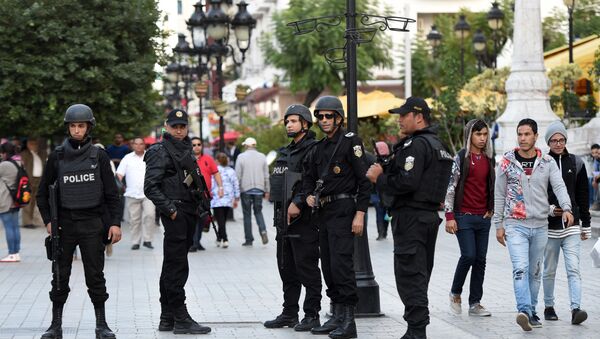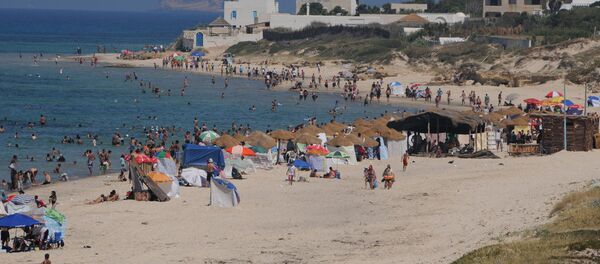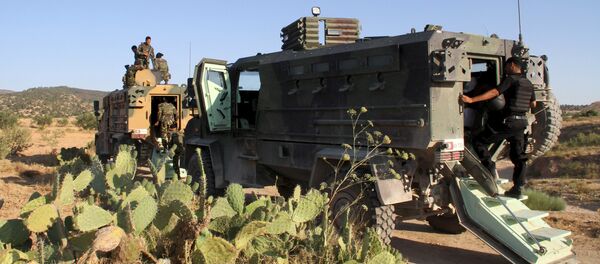"Tunisia has devoted very little attention to developing military production and procuring arms. We have devoted much more attention to education and the social sphere. Now, however, we must increase our expenditures on the military and on security…We are forced to do this, we must strengthen our armed forces for successfully countering terrorism," Gutali said during a press conference at Rossiya Segodnya International Information Agency.
Tunisia has seen increased terrorist activity since the 2011 Jasmine Revolution toppled the country's long-time leader Zine Abidine Ben Ali.
On March 18, 2015, a group of gunmen killed 22 tourists at the National Bardo Museum near the parliament building in the capital Tunis. Daesh terrorist group has claimed responsibility for the attack.
In November, a Daesh bomb hit a presidential guard bus in Tunis. Tunisian President Beji Caid Essebsi declared shortly a state of emergency saying the country was at war against terrorism. Late December, the state of emergency was extended for another two months.
Tunisia has also been the leading country of origin for extremist recruits for Daesh. The International Centre for the Study of Radicalization and Political Violence has placed Tunisia next to Saudi Arabia in terms of the number of citizens involved with radical jihadist organizations in Syria and Iraq, estimating the number to be between 1,500 and 3,000. Throughout late 2015, Tunisian security forces have made scores of arrests, detaining Daesh ecruiters.




